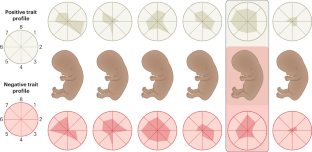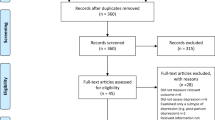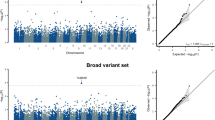Abstract
Genome-wide association studies have led to the identification of robust statistical associations of genetic variants with numerous brain-related traits, including neurological and psychiatric conditions, and psychological and behavioral measures. These results may provide insight into the biology underlying these traits and may facilitate clinically useful predictions. However, these results also carry the risk of harm, including possible negative effects of inaccurate predictions, violations of privacy, stigma and genomic discrimination, raising serious ethical and legal implications. Here, we discuss ethical concerns surrounding the results of genome-wide association studies for individuals, society and researchers. Given the success of genome-wide association studies and the increasing availability of nonclinical genomic prediction technologies, better laws and guidelines are urgently needed to regulate the storage, processing and responsible use of genetic data. Also, researchers should be aware of possible misuse of their results, and we provide guidance to help avoid such negative impacts on individuals and society.
This is a preview of subscription content, access via your institution
Access options
Access Nature and 54 other Nature Portfolio journals
Get Nature+, our best-value online-access subscription
$29.99 / 30 days
cancel any time
Subscribe to this journal
Receive 12 print issues and online access
$209.00 per year
only $17.42 per issue
Buy this article
- Purchase on Springer Link
- Instant access to full article PDF
Prices may be subject to local taxes which are calculated during checkout


Similar content being viewed by others
References
Uffelmann, E. et al. Genome-wide association studies. Nat. Rev. Methods Primers. 1, 59 (2021).
Yengo, L. et al. A saturated map of common genetic variants associated with human height from 5.4 million individuals of diverse ancestries. Nature 610, 704–712 (2022).
Jansen, P. R. et al. Genome-wide meta-analysis of brain volume identifies genomic loci and genes shared with intelligence. Nat. Commun. 11, 5606 (2020).
Klein, R. J. et al. Complement factor H polymorphism in age-related macular degeneration. Science 308, 385–389 (2005).
Choi, S. W., Mak, T. S. H. & O’Reilly, P. F. A guide to performing Polygenic Risk Score analyses. Nat. Protoc. 15, 2759–2772 (2020).
Khera, A. V. et al. Genome-wide polygenic scores for common diseases identify individuals with risk equivalent to monogenic mutations. Nat. Genet. 50, 1219–1224 (2018).
Landi, I. et al. Prognostic value of polygenic risk scores for adults with psychosis. Nat. Med. 27, 1576–1581 (2021).
Adeyemo, A. et al. Responsible use of polygenic risk scores in the clinic: potential benefits, risks and gaps. Nat. Med. 27, 1876–1884 (2021). This is a comprehensive summary of the state of polygenic score research, and includes thoughtful discussion on the needs and challenges as PRSs move closer to widespread use in the clinic.
Rossello, X. et al. Risk prediction tools in cardiovascular disease prevention: a report from the ESC Prevention of CVD Programme led by the European Association of Preventive Cardiology (EAPC) in collaboration with the Acute Cardiovascular Care Association (ACCA) and the Association of Cardiovascular Nursing and Allied Professions (ACNAP). Eur. Heart J. Acute Cardiovasc. Care 9, 522–532 (2020).
European Commission. Joint Research Centre. Genome-wide association studies, polygenic scores and social science genetics: overview and policy implications (Publications Office, 2019).
Wray, N. R., Yang, J., Goddard, M. E. & Visscher, P. M. The genetic interpretation of area under the ROC curve in genomic profiling. PLoS Genet. 6, e1000864 (2010).
Chatterjee, N., Shi, J. & García-Closas, M. Developing and evaluating polygenic risk prediction models for stratified disease prevention. Nat. Rev. Genet. 17, 392–406 (2016).
Trubetskoy, V. et al. Mapping genomic loci implicates genes and synaptic biology in schizophrenia. Nature 604, 502–508 (2022).
Savage, J. E. et al. Genome-wide association meta-analysis in 269,867 individuals identifies new genetic and functional links to intelligence. Nat. Genet. 50, 912–919 (2018).
Martin, A. R. et al. Current clinical use of polygenic scores will risk exacerbating health disparities. Nat. Genet. 51, 584–591 (2019).
Mostafavi, H. et al. Variable prediction accuracy of polygenic scores within an ancestry group. eLife 9, e48376 (2020).
Kong, A. et al. The nature of nurture: effects of parental genotypes. Science 359, 424–428 (2018).
Office for Civil Rights: Health Information Privacy (US HHS, accessed 1 April 2023); https://www.hhs.gov/hipaa/index.html
Phillips, A. M. Reading the fine print when buying your genetic self online: direct-to-consumer genetic testing terms and conditions. New Genet. Soc. 36, 273–295 (2017).
Peck, L., Borle, K., Folkersen, L. & Austin, J. Why do people seek out polygenic risk scores for complex disorders, and how do they understand and react to results? Eur. J. Hum. Genet. 30, 81–87 (2022).
Shoenbill, K., Fost, N., Tachinardi, U. & Mendonca, E. A. Genetic data and electronic health records: a discussion of ethical, logistical and technological considerations. J. Am. Med. Inform. Assoc. 21, 171–180 (2014).
Putt, S. et al. Exploration of experiences with and understanding of polygenic risk scores for bipolar disorder. J. Affect. Disord. 265, 342–350 (2020).
Lewis, A. C. F. & Green, R. C. Polygenic risk scores in the clinic: new perspectives needed on familiar ethical issues. Genome Med. 13, 14 (2021). This paper provides a good overview of the different ethical issues related to the use of polygenic risk scores in clinical practice.
Green, R. C., Lautenbach, D. & McGuire, A. L. GINA, genetic discrimination, and genomic medicine. N. Engl. J. Med. 372, 397–399 (2015).
Fost, N. Ethical issues in genetics. Pediatr. Clin. North Am. 39, 79–89 (1992).
Joly, Y. et al. The Genetic Discrimination Observatory: confronting novel issues in genetic discrimination. Trends Genet. 37, 951–954 (2021).
Tiller, J. et al. Genetic discrimination by Australian insurance companies: a survey of consumer experiences. Eur. J. Hum. Genet. 28, 108–113 (2020).
Clayton, E. W., Evans, B. J., Hazel, J. W. & Rothstein, M. A. The law of genetic privacy: applications, implications, and limitations. J. Law Biosci. 6, 1–36 (2019).
Phillips, A. et al. Informing relatives of their genetic risk: an examination of the Belgian legal context. Eur. J. Hum. Genet. https://doi.org/10.1038/s41431-021-01016-3 (2022).
Kraft, S. A., Duenas, D., Wilfond, B. S. & Goddard, K. A. B. The evolving landscape of expanded carrier screening: challenges and opportunities. Genet. Med. 21, 790–797 (2019).
Turley, P. et al. Problems with using polygenic scores to select embryos. N. Engl. J. Med. 385, 78–86 (2021). In this paper, the ethical and legal aspect of embryo selection using polygenic risk scores is discussed as well as the gains and the risks on society.
Kostick, K., Brannan, C., Pereira, S. & Lázaro‐Muñoz, G. Psychiatric genetics researchers’ views on offering return of results to individual participants. Am. J. Med. Genet. B Neuropsychiatr. Genet. 180, 589–600 (2018).
Karavani, E. et al. Screening human embryos for polygenic traits has limited utility. Cell 179, 1424–1435 (2019). In this paper, theory, simulations and real data are used to assess the impact of embryo selection based on polygenic risk scores. It is shown that such predictions have wide confidence intervals and in practice are hardly useful.
Ball, P. Polygenic screening of embryos is here, but is it ethical? (The Observer, 2021).
Baruch, S., Kaufman, D. & Hudson, K. L. Genetic testing of embryos: practices and perspectives of US in vitro fertilization clinics. Fertil. Steril. 89, 1053–1058 (2008).
Al-Khelaifi, F. et al. Genome-wide association study reveals a novel association between MYBPC3 gene polymorphism, endurance athlete status, aerobic capacity and steroid metabolism. Front. Genet. 11, 595 (2020).
Morgan, M. D. et al. Genome-wide study of hair colour in UK Biobank explains most of the SNP heritability. Nat. Commun. 9, 5271 (2018).
Dondorp, W. & de Wert, G. Refining the ethics of preimplantation genetic diagnosis: a plea for contextualized proportionality. Bioethics 33, 294–301 (2019).
Bayefsky, M. J. Comparative preimplantation genetic diagnosis policy in Europe and the USA and its implications for reproductive tourism. Reprod. Biomed. Soc. Online 3, 41–47 (2016).
Corveleyn, A., Morris, M., Zika, E., & Institute for Prospective Technological Studies. Preimplantation genetic diagnosis in Europe (Publications Office, 2007).
Bayefsky, M. Who should regulate preimplantation genetic diagnosis in the United States? AMA J. Ethics 20, 1160–1167 (2018).
Rodriguez, L. L., Brooks, L. D., Greenberg, J. H. & Green, E. D. The complexities of genomic identifiability. Science 339, 275–276 (2013).
Homer, N. et al. Resolving individuals contributing trace amounts of DNA to highly complex mixtures using high-density SNP genotyping microarrays. PLoS Genet. 4, e1000167 (2008).
D. Conley. What’s your polygenic score? Scientific American (13 March 2017).
Shabani, M. & Marelli, L. Re‐identifiability of genomic data and the GDPR. EMBO Rep. 20, e48316 (2019).
Hansson, M. G. et al. The risk of re-identification versus the need to identify individuals in rare disease research. Eur. J. Hum. Genet. 24, 1553–1558 (2016).
Beil, A. et al. Disclosure of clinically actionable genetic variants to thoracic aortic dissection biobank participants. BMC Med. Genomics 14, 66 (2021).
Wolf, S. M. Return of individual research results and incidental findings: facing the challenges of translational science. Annu. Rev. Genomics Hum. Genet. 14, 557–577 (2013).
Wolf, S. M. The challenge of incidental findings. J. Law. Med. Ethics 36, 216–218 (2008).
De Clercq, E., Kaye, J., Wolf, S. M., Koenig, B. A. & Elger, B. S. Returning results in biobank research: global trends and solutions. Genet. Test. Mol. Biomark. 21, 128–131 (2017).
Bredenoord, A. L., Onland-Moret, N. C. & Van Delden, J. J. M. Feedback of individual genetic results to research participants: in favor of a qualified disclosure policy. Hum. Mutat. 32, 861–867 (2011). This article provides a very thoughtful overview of ethical issues concerning whether and when researchers have a moral obligation to return genetic research results to participants. It also includes clear suggestions on a qualified disclosure policy.
Jarvik, G. P. et al. Return of genomic results to research participants: the floor, the ceiling, and the choices in between. Am. J. Hum. Genet. 94, 818–826 (2014).
Dashti, H. S. et al. Genome-wide association study of breakfast skipping links clock regulation with food timing. Am. J. Clin. Nutr. 110, 473–484 (2019).
van de Vegte, Y. J., Said, M. A., Rienstra, M., van der Harst, P. & Verweij, N. Genome-wide association studies and Mendelian randomization analyses for leisure sedentary behaviours. Nat. Commun. 11, 1770 (2020).
Coffee and Caffeine Genetics Consortium. et al. Genome-wide meta-analysis identifies six novel loci associated with habitual coffee consumption. Mol. Psychiatry 20, 647–656 (2015).
Gerard, R. W. The role of pure science. Science 88, 361–368 (1938).
Carlson, J. & Harris, K. Quantifying and contextualizing the impact of bioRxiv preprints through automated social media audience segmentation. PLoS Biol. 18, e3000860 (2020). This paper introduces a method to assess the impact of preprints, which can aid in tracking online (mis)appropriation of GWAS results.
Winkelman, W. D., Missmer, S. A., Myers, D. & Ginsburg, E. S. Public perspectives on the use of preimplantation genetic diagnosis. J. Assist. Reprod. Genet. 32, 665–675 (2015).
Ran, F. A. et al. Genome engineering using the CRISPR–Cas9 system. Nat. Protoc. 8, 2281–2308 (2013).
Xu, M. CCR5-Δ32 biology, gene editing, and warnings for the future of CRISPR–Cas9 as a human and humane gene editing tool. Cell Biosci. 10, 48 (2020).
van Beers, B. C. Rewriting the human genome, rewriting human rights law? Human rights, human dignity, and human germline modification in the CRISPR era. J. Law Biosci. 7, lsaa006 (2020).
Coller, B. S. Ethics of human genome editing. Annu. Rev. Med. 70, 289–305 (2019).
Read the Affordable Care Act, Health Care Law (HealthCare, accessed 1 April 2023); https://www.healthcare.gov/where-can-i-read-the-affordable-care-act/1
EU Law - EUR-Lex (accessed 1 April 2023, EUR-Lex); https://eur-lex.europa.eu/homepage.html?locale=en
Taylor, M. J., Wallace, S. E. & Prictor, M. United Kingdom: transfers of genomic data to third countries. Hum. Genet. 137, 637–645 (2018).
Wertz, D. C. & Knoppers, B. M. Serious genetic disorders: can or should they be defined? Am. J. Med. Genet. 108, 29–35 (2002).
Botkin, J. R. Fetal privacy and confidentiality. Hastings Cent. Rep. 25, 32–39 (1995).
Lázaro-Muñoz, G., Pereira, S., Carmi, S. & Lencz, T. Screening embryos for polygenic conditions and traits: ethical considerations for an emerging technology. Genet. Med. 23, 432–434 (2021). This is a very clear commentary on ethical issues related to polygenic embryonic screening.
Ganna, A. et al. Large-scale GWAS reveals insights into the genetic architecture of same-sex sexual behavior. Science 365, eaat7693 (2019).
Dawood, K., Bailey, J. M. & Martin, N. G. Genetic and Environmental Influences on Sexual Orientation. in Handbook of Behavior Genetics (ed. Kim, Y. K.) 11 (Springer, 2009).
Check Hayden, E. Ethics: taboo genetics. Nature 502, 26–28 (2013).
Sniekers, S. et al. Genome-wide association meta-analysis of 78,308 individuals identifies new loci and genes influencing human intelligence. Nat. Genet. 49, 1107–1112 (2017).
Hsu, S. Super-intelligent humans are coming. Nautilus (2 October 2014).
Bulik-Sullivan, B. K. et al. LD score regression distinguishes confounding from polygenicity in genome-wide association studies. Nat. Genet. 47, 291–295 (2015).
Watanabe, K. et al. A global overview of pleiotropy and genetic architecture in complex traits. Nat. Genet. 51, 1339–1348 (2019).
Verbanck, M., Chen, C.-Y., Neale, B. & Do, R. Detection of widespread horizontal pleiotropy in causal relationships inferred from Mendelian randomization between complex traits and diseases. Nat. Genet. 50, 693–698 (2018).
Brainstorm Consortium. et al. Analysis of shared heritability in common disorders of the brain. Science 360, eaap8757 (2018).
Hill, W. D., Harris, S. E. & Deary, I. J. What genome-wide association studies reveal about the association between intelligence and mental health. Curr. Opin. Psychol. 27, 25–30 (2019).
Lee, J. J. et al. Gene discovery and polygenic prediction from a genome-wide association study of educational attainment in 1.1 million individuals. Nat. Genet. 50, 1112–1121 (2018).
Lencz, T. et al. Concerns about the use of polygenic embryo screening for psychiatric and cognitive traits. Lancet Psychiatry https://doi.org/10.1016/S2215-0366(22)00157-2 (2022).
Wedow, R., Martschenko, D. O. & Trejo, S. Scientists must consider the risk of racist misappropriation of research (Scientific American, 2022).
Molteni, M. Buffalo shooting ignites a debate over the role of genetics researchers in white supremacist ideology. STAT (23 May 2022).
Wills, M. Are clusters races? A discussion of the rhetorical appropriation of Rosenberg et al.’s ‘Genetic structure of human populations’. Philos. Theor. Pract. Biol. 9, 12 (2017).
Lewis, A. C. F. et al. Getting genetic ancestry right for science and society. Science 376, 250–252 (2022).
Piffer, D. New genes, same results: group-level genotypic intelligence for 26 and 52 populations. topseudoscience (2 June 2017).
McKinley, J., Traub, A. & Closson, T. Gunman kills 10 at Buffalo supermarket in racist attack (The New York Times, 2022).
Jones, D. What is the ‘great replacement’ and how is it tied to the Buffalo shooting suspect? (NPR, 2022).
Acknowledgements
This work is supported by the Netherlands Organization for Scientific Research—Gravitation project ‘BRAINSCAPES: a Roadmap from Neurogenetics to Neurobiology’ (024.004.012) and the European Research Council advanced grant ‘From GWAS to Function’ (ERC-2018-ADG 834057). We thank E. Uffelmann and P. Jansen for critical reading and fruitful discussions on earlier versions of this paper, and E. Bunnik for critically reading a pre-final version from a bioethical point of view.
Author information
Authors and Affiliations
Corresponding author
Ethics declarations
Competing interests
The authors declare no competing interests.
Peer review
Peer review information
Nature Neuroscience thanks Andrew McIntosh and the other, anonymous, reviewer(s) for their contribution to the peer review of this work.
Additional information
Publisher’s note Springer Nature remains neutral with regard to jurisdictional claims in published maps and institutional affiliations.
Rights and permissions
Springer Nature or its licensor (e.g. a society or other partner) holds exclusive rights to this article under a publishing agreement with the author(s) or other rightsholder(s); author self-archiving of the accepted manuscript version of this article is solely governed by the terms of such publishing agreement and applicable law.
About this article
Cite this article
de Hemptinne, M.C., Posthuma, D. Addressing the ethical and societal challenges posed by genome-wide association studies of behavioral and brain-related traits. Nat Neurosci 26, 932–941 (2023). https://doi.org/10.1038/s41593-023-01333-4
Received:
Accepted:
Published:
Issue Date:
DOI: https://doi.org/10.1038/s41593-023-01333-4
This article is cited by
-
Let’s talk about diversity in human neuroscience
Nature Methods (2023)



